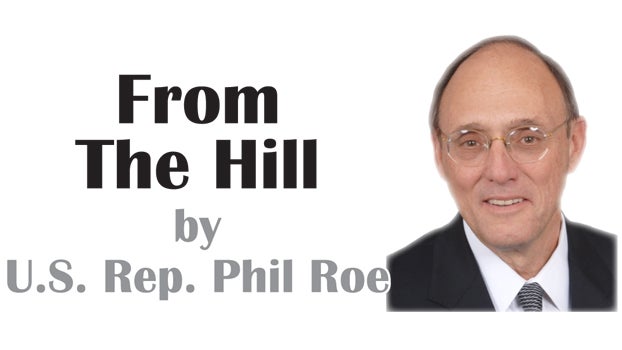Opioid crisis: Good news, but a long way to go
Published 8:55 am Monday, September 30, 2019
Communities across the country are fighting an epidemic against opioid abuse, and Northeast Tennessee is at the epicenter of this crisis. Chances are you know someone — a friend, relative, or coworker — who has been affected. The opioid epidemic did not happen overnight but was decades in the making. There is no doubt it’s a crisis. More Americans die every year from opioid overdoses than Americans who died during the entirety of the Vietnam War, and it’s more common to die in Tennessee from an opioid overdose than from a car wreck. Ending this crisis will be neither easy nor quick.
There is, however, progress being made nationally. For the first time in nearly 30 years, drug overdose deaths decreased last year. According to the Centers for Disease Control and Prevention (CDC), overdose deaths dropped nationally from 70,237 in 2017 to 68,557 in 2018. After years of steadily increasing overdose deaths, it appears that efforts to reverse this crisis are starting to have an impact, but in Tennessee, we still experienced a record number of 1,856 opioid deaths last year. This needs to continue to be a priority at the federal, state and local level, and I will continue to make it one. I am grateful for President Trump’s leadership as well, who has declared the opioid epidemic a public health emergency.
The decrease in the number of deaths is due in part to increased recognition on the seriousness of this issue. Over the last few years, I’ve been proud to support important reforms that expand resources to fight this epidemic. Last Congress, I was proud to vote for the SUPPORT for Patients and Communities Act, and before that I voted for the Comprehensive Addiction and Recovery Act and the 21st Century Cures Act. Together, these bills increase access to medication-assisted treatment for substance abuse, expand the use of telehealth services, incentivize the use of non-opioid prescription alternatives, target the influx of synthetic opioids like fentanyl, enhance physician awareness of improving prescribing practices, and improve disposal of unused prescription opioids which often become a source that fuels addiction. After providing over $10 billion the past two years to fund these programs, the good news is that East Tennessee is beginning to see this funding. East Tennessee State University, Ballad, Cherokee Health Systems, Rural Health Services Consortium and several statewide agencies that do work in our area, have all received direct funding to address the crisis in our region.
In May, Rep. Tim Burchett (TN.-02) and I held a joint roundtable in Jefferson County to hear from local experts on how to combat this crisis across our region. One takeaway we heard is that prevention is key. Once addicted, it is difficult to stay clean and not fall back into old habits. We need to engage with our schools, medical community, law enforcement and public health officials with a multi-pronged strategy. There is no community that is unaffected.
One overlooked demographic in this epidemic is the elderly. Last week, the House Education and Labor Committee, on which I serve, passed the Dignity in Aging Act to reauthorize the Older Americans Act (OAA). The OAA authorizes funding for organizations and agencies that provide services to the elderly. I was pleased to co-author a bipartisan amendment with Rep. Lauren Underwood (D-IL) to allow agencies who receive these funds to use funding to help address opioid addiction for older Americans. We must provide these services to prevent and treat drug abuse among the elderly.
In addition to our efforts to better help providers and treatment facilities help people, we must also help our local law enforcement get these illicit synthetic drugs like fentanyl off the streets. Opioid addicts are being targeted by drug dealers importing these drugs, resulting in even more deaths. Currently, one of the obstacles the Drug Enforcement Administration (DEA) has in stopping the illicit flow of opioidlike drugs into the U.S. is waiting for new substances to be developed then classify them as Schedule I. I introduced the Modernizing Drug Enforcement Act with Rep. Tom Suozzi (D-NY) to automatically classify synthetic opioids as Schedule I based on their chemical structure and function. This legislation will help give the DEA the flexibility and tools needed to get these deadly drugs off the streets.
We need a multi-pronged approach, but I am hopeful that all of these actions will move us one step closer to ending this epidemic once and for all.


